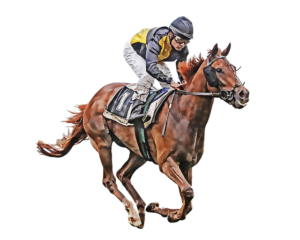 At the time of his death, on June 13, 2013, Sir Henry Richard Amherst Cecil was hailed by ‘The Scotsman’ as ‘Britain’s greatest racehorse trainer of the past five decades’. Born in Aberdeen on January 11, 1943, Cecil nevertheless became the epitome of a quintessential English gentleman; calm, polite and softly spoken, he was as a universally popular as he was successful.
At the time of his death, on June 13, 2013, Sir Henry Richard Amherst Cecil was hailed by ‘The Scotsman’ as ‘Britain’s greatest racehorse trainer of the past five decades’. Born in Aberdeen on January 11, 1943, Cecil nevertheless became the epitome of a quintessential English gentleman; calm, polite and softly spoken, he was as a universally popular as he was successful.
Cecil first took out a training licence at Freemason Lodge Stables on Bury Road, Newmarket, where he succeeded his step-father, Sir Cecil Boyd Rochford, in 1968. He saddled his first winner, Celestial Cloud, in an amateur riders’ maiden stakes race at Ripon, on May 17, 1969. By the time Cecil succeeded his father-in-law, Sir Noel Murless, at Warren Place on nearby Moulton Road at the end of the 1976 season, he had already won back-to-back renewals of the 2,000 Guineas, with Bolkonski in 1975 and Wollow in 1976. He sent out both winners from his interim base at Marriot Stables, now Chestnut Tree Stables, on the Hamilton Road, with Wollow also contributing the Eclipse Stakes, Sussex Stakes and Juddmonte International Stakes towards his first trainers’ title.
Cecil was crowned Champion Trainer again in his year at Warren Place, 1978, and would go on to win eight more trainers’ titles in 1979, 1982, 1984, 1985, 1987, 1988, 1990 and 1993. Indeed, between the late seventies and the early nineties, the name ‘H. R.A. Cecil’ on a racecard, alongside those of Joe Mercer, Lester Piggott and Steve Cauthen, who were successive stable jockeys at Warren Place, was guaranteed to quicken the blood of the average racegoer.
However, in 1995, the relationship between Cecil and leading owner Sheikh Mohammed deteriorated and, ultimately, broke down completely after a series of disagreements. The susbequent removal of 40 horses from Warren Place inevitably led to a downturn in the fortunes of the, by then, 10-time Champion Trainer and, for a period, his career looked to be in terminal decline. For a period of just over six years, between July 2000 and October 2006, Cecil failed to saddle a single Group 1 winner and, in 2005, his seasonal tally was just 12 winners, down from a career-best 119 winners back in 1991.
Furthermore, in 2006, it was revealed that Cecil was undergoing treatment for the stomach cancer that would, tragically, end his life on June 11, 1973. Nevertheless, despite constant ill health, it was testament to the courage and competitiveness of the man that, under the auspices of long-standing ally Khaled Abdullah, in particular, Cecil increased his seasonal tally to 25 winners in 2006, 45 in 2007 and, thereafter, saddled 52 or more winners for the next five seasons running.
A truly masterful horseman, particularly adept at training fillies, Cecil won the Oaks eight times – including with Fillies’ Triple Crown winner Oh So Sharp in 1985 – the 1,000 Guineas six times, The Derby and the St. Leger four times apiece and the 2,000 Guineas. Yet, for all his Classic success, it is likely that Sir Henry Cecil will likely always be best remembered for his association with one horse, Frankel, who completed his unbeaten 14-race career on British Champions Day at Ascot on October 21, 2012 and remains the highest-rated Flat horse in history of Timeform, which began shortly after World War II. By that stage, Cecil had become a ‘Sir’, having been knighted by Queen |Elizabeth II the previous year, and it was entirely fitting that he should enjoy a remarkable revival, late in his career, with a horse carrying the famous green, pink and white colours of his loyal supporter.
